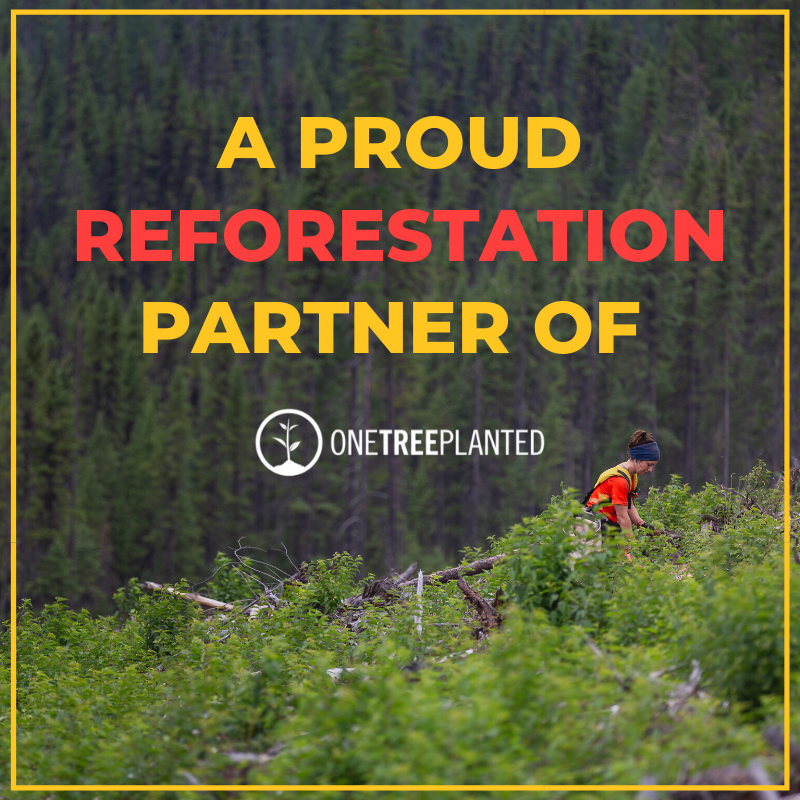

At Boston Mills, our mission is to center all of our actions ethically on the belief that the past sustains our present and future. Our business supports creating sustainable, eco-friendly, fair trade custom products that last a lifetime. We believe in conscious consumerism and making the world a better place. We choose to hold ourselves and our furniture to a very high ethical standard and always find innovative solutions to support that vision.
Sustainability is one of the primary driving forces that guide all aspects of our business, from lumber sourcing and design to manufacturing process and innovation. We do this to safeguard and restore our environment, create economic value, and aid and strengthen our planet by inspiring others.
We are thrilled by the rescue of old-growth trees that have outlived their time. Their history is beautifully alive, with character in the visible knots, cracks, and tight wood grain. It's so rewarding to transform them into modern furnishings for the next generation to dwell with, appreciate, and share in the wood's continuing story.
Just like we can turn a piece of wood into fresh, new-looking pieces of furniture, our furniture can also be broken down and turned into something new. Theoretically, when its lifetime is complete, it can be broken down and back into the earth like its origination.
Our finishes are VOC-free because we believe that the environment you live and work in should be healthy.
While it might make for an easy slogan, "Never cut down trees," that's not the best call to action to care about wildlife conservation. Environmental issues are often complex and require complex solutions. It's not always as straightforward as a simple "either-or." The ultimatum is neither climate change mitigation nor wildlife conservation. The ideal case for our environment is a balanced approach: pursuing a mixed portfolio of habitat composition from passively governed forest reserves with no tree cutting to the other end of the spectrum of open grasslands, shrublands, and young forests, which require active forestry activities like tree cutting and mulching. Strategic cutting of trees provides for regeneration, improves habitat for many species, maintains forest health, and helps us shape forests for the future.
We firmly believe that all living things are part of a complex biosphere comprised of ecosystems. Hence, the conservation of all endangered species is critical to the health of our planet's environment. We carefully source only unendangered rosewood for our furniture.
CITES regulates rosewood because it's endangered in only certain countries. Our rosewood comes from the South Asian Region, where it's not endangered. However, a CITES permit is required to ensure the chain of custody, confirm the country of origin, and ensure no transshipping is involved. Issuance of CITES permits is a cumbersome and lengthy process. Still, at Boston Mills, we never import rosewood without a CITES permit.
Boston Mills has established long-term relationships with suppliers specializing in ethical and selective rosewood harvesting giving us priority access to rosewood from dead or fallen trees. Moreover, all of our rosewood comes from professionally managed forests for sustainability.

We care enormously about the planet and creating a business that delivers back to nature. We're delighted to share that we've partnered with One Tree Planted to donate proceeds from our profits for every purchase. One Tree Planted is a nonprofit committed to global reforestation.
Together we aim to plant trees to restore nature and biodiversity. We are also committed to raising awareness concerning the significance of planting trees, offering uncomplicated sustainability solutions, and motivating younger generations to do something positive for the environment.
Trees help cool the earth by sucking in and storing damaging greenhouse gases like carbon dioxide into their trunks, branches, and leaves — and releasing oxygen back into the air. In cities, trees can decrease ambient temperatures by 14° F. With more than 50% of the population living in cities — a number anticipated to grow to 66% by 2050 — pollution and overheating are becoming a real issue. Fortunately, a mature tree can soak an average of 22lbs of carbon dioxide per year, making cities a healthier, securer place to live.
